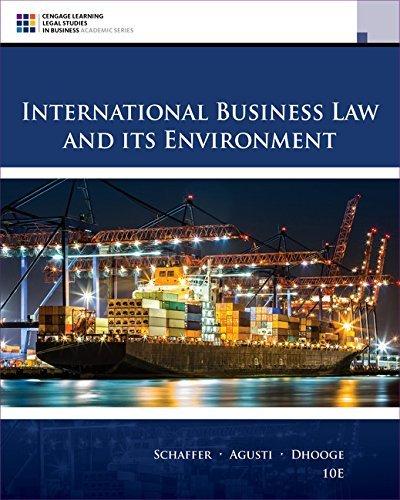J. Wu entered three shipments of T-shirts purchased from Hui, who claimed that he operated a factory
Question:
1. What was Wu's motivation in stating that the shirts were made in the Dominican Republic?
2. What is the burden of proof? Must the United States prove that Wu was negligent or must Wu prove that she was not?
3. Can the importer (Wu) rely on the statements of the third party (here, the shirt exporter) to avoid responsibility?
Broker
A broker is someone or something that acts as an intermediary third party, managing transactions between two other entities. A broker is a person or company authorized to buy and sell stocks or other investments. They are the ones responsible for...
Fantastic news! We've Found the answer you've been seeking!
Step by Step Answer:
Related Book For 

International Business Law And Its Environment
ISBN: 9781305972599
10th Edition
Authors: Richard Schaffer, Filiberto Agusti, Lucien J. Dhooge
Question Posted:





